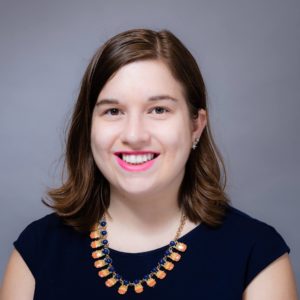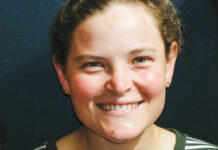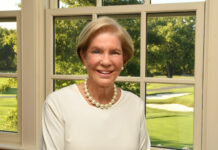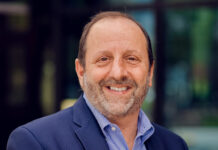
Meet the newest resident of Moishe House Baltimore.
Dana Kobrin, 25, moved to Baltimore last month. She is getting her master’s in social work from the University of Maryland, Baltimore, and is a volunteer crisis counselor at Crisis Text Line.
Kobrin grew up in an Orthodox community in Silver Spring. She attended Melvin J. Berman Hebrew Academy and studied psychology at the University of Maryland, Baltimore County for her undergrad.
At Moishe House, she will be planning programming for young Jewish professionals.
Was Judaism a big part of your upbringing?
I grew up in a traditionally Orthodox family. Pretty religiously observant, did all the holidays, Shabbat, kosher.
What does your Jewish identity mean to you?
To me, it’s a complex intersection. A lot of people identify one way with what they believe. I believe my Jewish identity intertwines with the rest of my identities, which, for me, is somebody with a disability and somebody LGBTQ+ and a woman. And the Jewish cultural value of that is that I have a community, I have moral values, I have people that support me, and I’m not a super observant or spiritual person, but I’m very secular and cultural oriented.
Could you share more about your identities as someone who is LGBTQ and has a disability?
I’m bisexual in the LGBTQ+, and a lot of Jews are scared to come out, or a lot of Jews are scared to be out because there’s a lot of stigma in more religious communities. I’ve known since college, probably six, seven years now. In certain communities, I was afraid to come out because of the repercussions and because of the stigma.
I don’t care anymore for two reasons. One, because I can be a role model for other Jews who are scared to come out. And [two], because I’m a lovely Jewish person, regardless of who I date or love, and that doesn’t change. Even before I came out, I was still an ally, and now I’m even an ally to other identities in the LGBTQ+ spectrum, so I do a lot of pride advocacy work, which is why I’m looking forward to Pride [this] month.
In terms of disabilities, I have learning disabilities. I was not diagnosed until college, and academics was always just really hard for me, to the point where grades did not represent my effort.
As someone who is bisexual, did growing up in an Orthodox community present challenges to you?
Yeah, I grew up in an environment where it wasn’t really accepted. That’s why I had a really hard time. … [There were] people who would not care; of course I was out to [them]. Sometimes, it wasn’t really that I was ashamed; it was more that I didn’t want to hear it, … I didn’t want to deal with it. It’s about tolerance to me. You’re never going to love and respect everybody, but human decency. For some people I grew up with, I would tell them and I knew they wouldn’t care. Even if they were more observant than me, it doesn’t bother them.
Why did you decide to become a Moishe House resident?
I was already looking to live in Baltimore City, regardless of Moishe House, in 2020. Life put that through a loop. I knew about Moishe House in college, but … they were not super active when I was in college. It was one of those things where I was aware of but did nothing about it. One of the current residents connected me, as well as the Hillel rabbi at UMBC. … It turned out to be a really good fit for me because, in addition to Jewish life and culture, I really enjoy programming.







